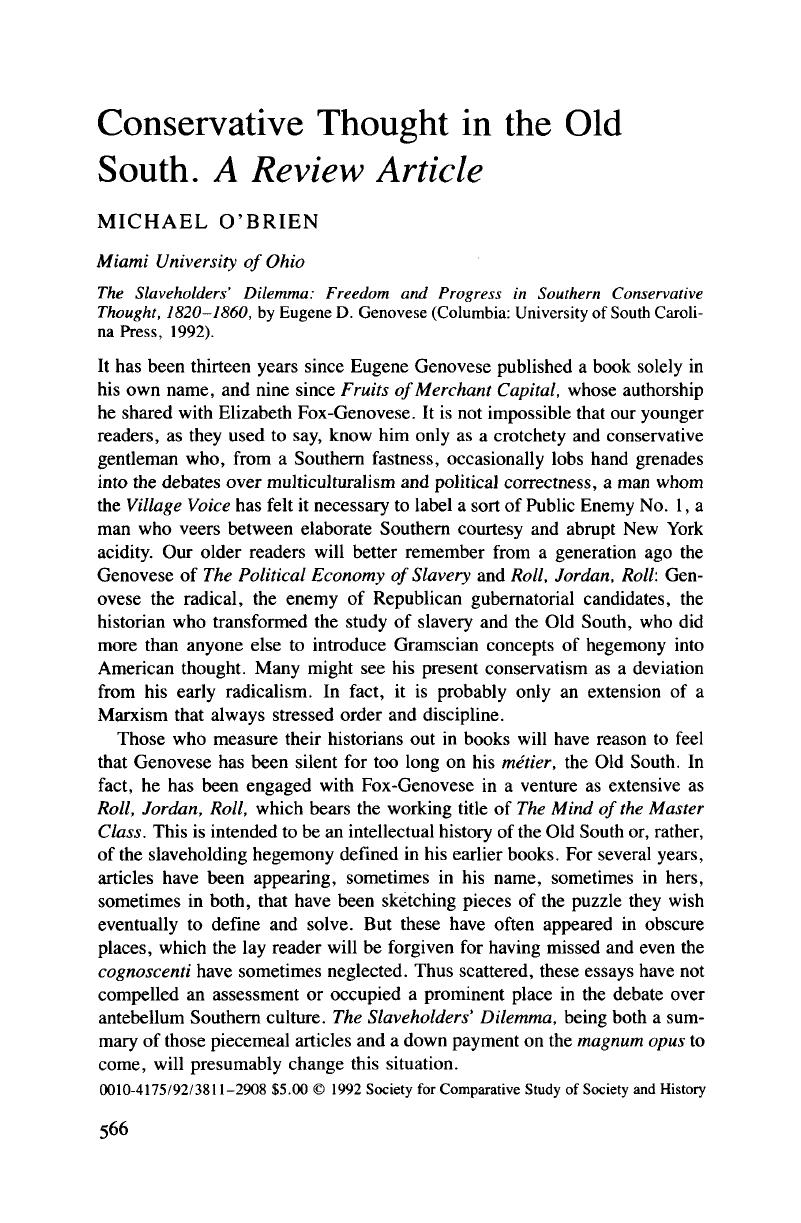Article contents
Conservative Thought in the Old South. A Review Article
Published online by Cambridge University Press: 03 June 2009
Abstract

- Type
- CSSH Discussion
- Information
- Copyright
- Copyright © Society for the Comparative Study of Society and History 1992
References
1 Fox-Genovese, Elizabeth and Genovese, Eugene D., “The Divine Sanction of Social Order: Religious Foundations of the Southern Slaveholders' World View,” Journal of the American Academy of Religion, 55:2 (1987), 212.Google Scholar
2 Notably in “The Political Crisis of Social History: Class Struggle as Subject and Object,” in Fox-Genovese, Elizabeth and Genovese, Eugene D., Fruits of Merchant Capital: Slavery and Bourgeois Property in the Rise and Expansion of Capitalism (New York: Oxford University Press, 1983), 179–212.Google Scholar
3 Ford, Lacy K., “Republican Ideology in a Slave Society: The Political Economy of John C. Calhoun,” Journal of Southern History, 54 (08 1988), 405–24.CrossRefGoogle Scholar
4 “Two Letters on the Subject of Slavery in the United States, Addressed to Thomas Clarkson, Esq.,” in Wilson, Clyde N., ed., Selections from the Letters and Speeches of the Hon. James Henry Hammond (1866; reprint, Columbia, S.C.: The Reprint Company, 1978), 119.Google Scholar
5 Hammond, “Two Letters,” 119–20.
6 \;Holmes, George Frederick], “On Slavery and Christianity,” Southern Quarterly Review, 3 (01 1843), 253.Google Scholar
7 Legaré, Hugh Swinton, “Hall's Travels in North-America,” in Legaré, Mary Swinton, ed., Writings of Hugh Swinton Legaré, 2 vols. (Charleston: Burges and James, 1845–1946), 11:284.Google Scholar
8 Faust, Drew Gilpin, James Henry Hammond and the Old South: A Design for Mastery (Baton Rough, 1982), 249, 261–62 (quotation on 249).Google Scholar
9 See, for example, William Henry Trescot to William Porcher Miles, 13 November 1853, William Porcher Miles Papers, Southern Historical Collection, University of North Carolina, Chapel Hill. This tells an anecdote, drawn from the life of Marie-Angélique, Duchesse de Fontanges (a mistress of Louis XIV), about a riddle told at Versailles to an innocent virgin, to which the answer was “a vagina.”
- 2
- Cited by




